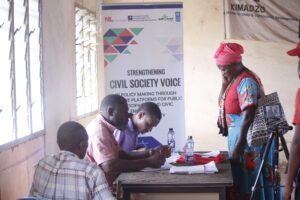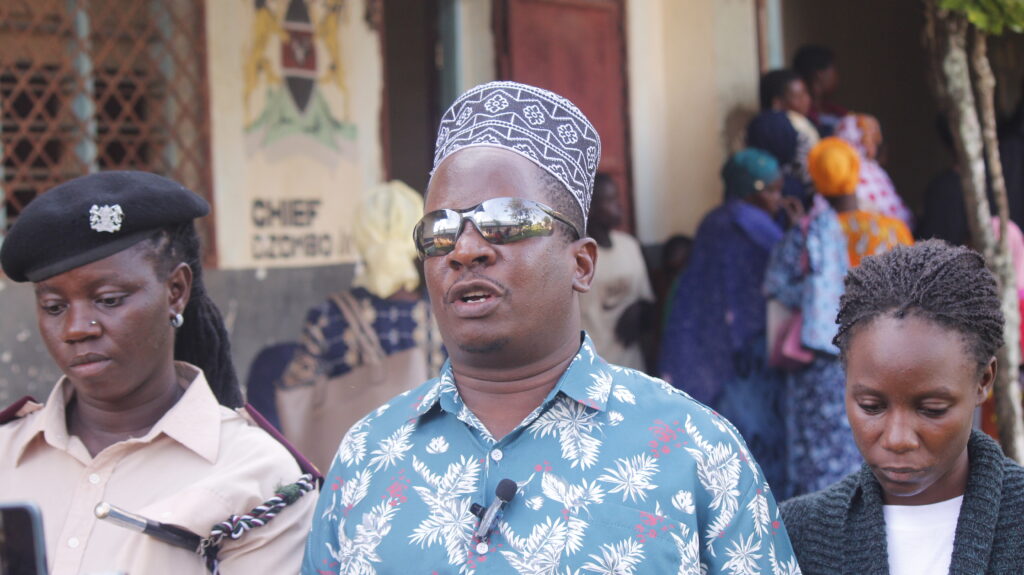A mass registration exercise in Dzombo Ward, Lunga-Lunga Sub-county, has brought to light a concerning spike in cerebral palsy cases among children and critical shortages in disability care services underscoring the need for targeted government intervention.
The mass registration exercise conducted by Muslim Women Advancement of Rights and Protection (MWARP) in collaboration with the Kwale County Disability Council and the County Department of Health has registered more than 300 persons living with Disabilities (PWDs) as part of a wider campaign to bring essential services closer to remote communities.
According to Sanga Kabuka, a disability specialist and lead doctor in the exercise, 52 children were assessed, with 20 cases of children confirmed to be cerebral palsy. He noted that public understanding of cerebral palsy has grown in recent years, thanks to increased community awareness campaigns.
“Nowadays, many parents are more informed about cerebral palsy and the interventions that can support their children,” Kabuka said. “But the biggest challenge remains the shortage of qualified doctors and suitable health facilities. Here in Dzombo, there are no specialized centers for children with disabilities.”
Kabuka added that while the World Health Organization (WHO) recommends a doctor-to-patient ratio of 1:6 for children with disabilities, Lunga-Lunga’s current ratio is one doctor for every 40 children, making it difficult to provide quality and timely care.
He emphasized that cerebral palsy is a medical condition, not a curse or result of witchcraft contrary to beliefs held by many in rural areas. “Causes include brain damage before, during, or after birth, malaria or flu during pregnancy, malnutrition, meningitis, or cerebral malaria,” he explained. “There are also cases caused by stroke or genetic factors.”
MWARP County Coordinator Mwalimu Ali said the shift from disability cards to disability certificates is aimed at aligning identification with modern systems, including e-Citizen integration to streamline access to public services.
“We brought this exercise to the grassroots because the majority of PWDs live in remote areas,” Mwalimu said. “It is essential that families embrace this new system so they can easily access healthcare and government support.”
The certificate not only improves service delivery but also increases visibility for people with disabilities in national databases, crucial for planning and inclusion in development programs.
Mwalimu said the organization will continue working with other stakeholders to ensure every PWD in Kwale is reached, particularly in areas like Dzombo that report a high number of disability cases in children.
Gladys Murabu, area chief for Dzombo, highlighted the importance of targeting older PWDs, many of whom have faced registration barriers in the past. “The new system serves everyone, regardless of age. Today we registered adults and children alike,” she said.
Murabu also expressed concern over the alarming number of unregistered individuals. “We discovered that many lack national IDs, which points to cases of PWDs being hidden in homes. Caregivers must come forward and ensure they are registered.”
Gure Nyau Wamshenga, a resident living with special needs from Dzombo. A. village said the mobile registration had spared him and others the cost and hardship of traveling long distances. “We are grateful to MWARP for bringing this service closer to us. Most of us cannot afford the transport to government offices. I urge all caregivers to come forward, this is the only way our children will benefit from government projects and support.”


